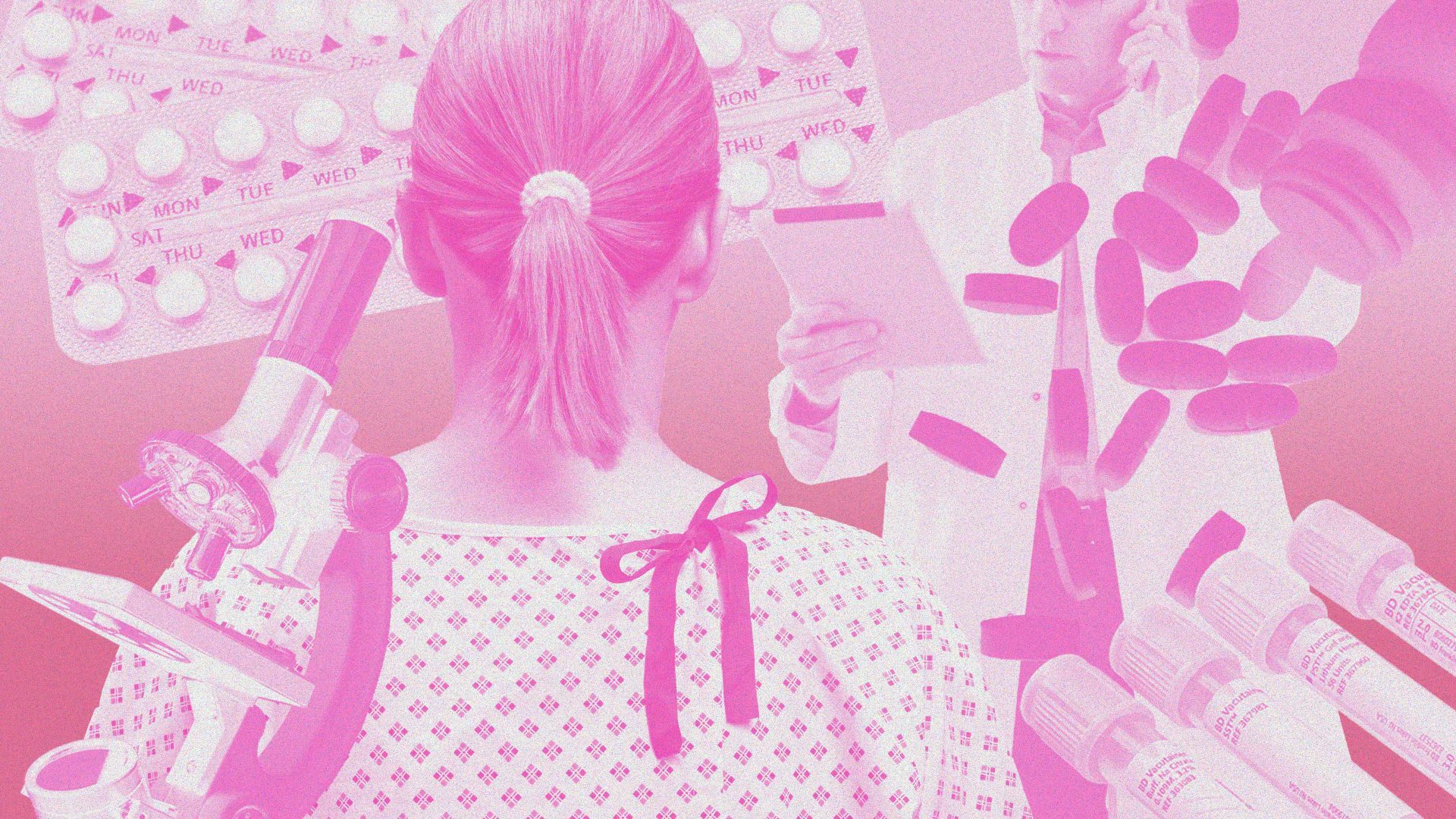Seeing the missed call notification on my phone made my heart sink. For nearly two months, I had been waiting for the results of a test my GP had sent to gynaecology and now the surgery’s number sat, highlighted in red, in my missed call list. I found out when I checked my voicemail that the reason they had phoned had nothing to do with this at all, but requesting I book in for an electrocardiogram (ECG).
An administrative error had caused patients to be contacted for appointments that didn’t correspond to their course of treatment. “While I have you, can you access some test results I’m waiting for?” I asked the receptionist when I returned the call and made it past the surgery’s perpetual hold message. She assured me she would get her manager to ring me when she returned to her desk. Fast forward three weeks and I still haven’t heard back.
This is just the latest instalment of a saga that began two years ago, when I started experiencing ovarian and abdominal pain. I had always suffered from painful periods and to manage this, like many girls of my generation, I was shepherded on to the contraceptive pill at the age of 15, with little regard for potential side effects.
Six years later, I opted to come off the medication, giving my body a break from the constant pump of hormones.
But then in 2022, the pain started. On the advice of doctors, I tried alternative contraception methods, had two different ultrasounds at two different hospitals, had blood tests and wore a monitor for 24 hours which, loudly, took my blood pressure every 20 minutes during the day and every hour at night.
Twice my test results have been lost in the system, meaning my case began the triage process again. One GP believed all signs pointed towards polycystic ovaries (PCOS), but another wasn’t convinced. “It may be one of those things that just goes away,” they’d say.
Today, all I have to show for my efforts is a prescription to manage my symptoms, but no diagnosis. The back-and-forth has left me considering private healthcare, although as my condition is already under investigation, my options are limited. According to a Savanta poll, one in seven adults in England were advised to go private by an NHS professional in 2023. Over a quarter (28%) said they had taken this advice and accessed private healthcare in the past year.
My experience is far from unusual. An exclusive study published in the Independent revealed a third of women with a health condition have been made to wait three years or longer for a diagnosis. It also found that half of those women took a year or more to be diagnosed. Additionally, Nurofen’s Gender Pain Gap Index Report found that 47% of women surveyed received a diagnosis within 11 months compared to 66% of men.
For years, a friend of mine had pain that was constantly gaslit by medical professionals, only to be diagnosed with endometriosis years later. A disease that affects one in 10 women, it causes tissue similar to the lining of the womb to grow in other places, such as the ovaries. When, last month, the Economist reported that the first endometriosis drug was four decades away, a friend shared the article on Instagram with the caption: “Can’t wait to be cured when I’m 68.”
It was another headline, however, that recently caught my attention. The FT magazine published a piece entitled: “Ovaries are an enigma that could unlock human lifespan”. The piece introduced the philanthropist Nicole Shanahan, who is spending $100m on ovarian research. Several male philanthropists have said that the issue is out of their league. “I’ve heard one man tell me: ‘that’s above my pay grade.’ I would love to put the message out that they have everything they need to know, they are fully qualified to fund this space, and we would welcome it,” Shanahan told the FT magazine. If ovaries really do hold the key to life’s mysteries, then why is only approximately 2% of medical research funding in the UK currently spent on pregnancy, childbirth and fertility? Meanwhile, women are left in medical purgatory.
One night last year, my symptoms became unbearable and, at the advice of my GP, I went to A&E. After a few hours of waiting, a junior doctor called my name and ushered me into a room to examine me. As the pain had slowly started to subside, he suggested I “take it easy” and get back in touch with my GP. On the way home, I texted one of my girlfriends. “Happy International Women’s Day,” she replied. I checked the date – she was right.




